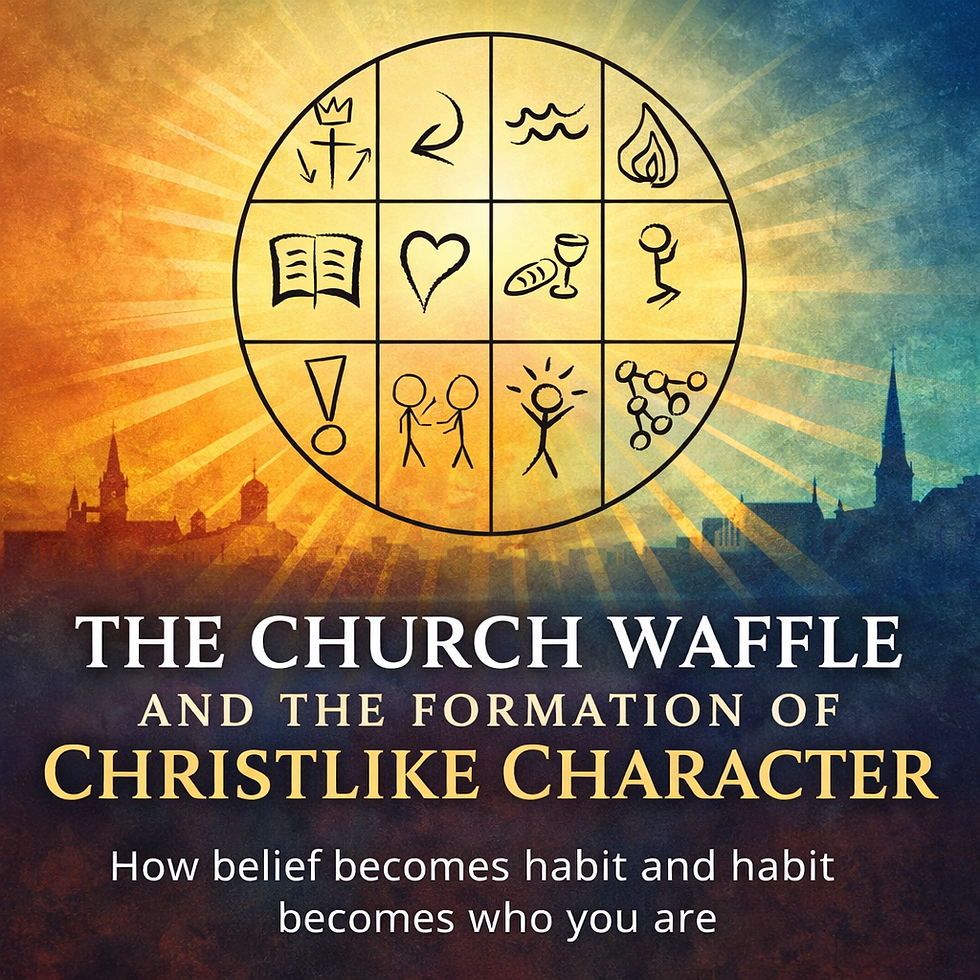Living the Future Now: Bridging the Sacred-Secular Divide Through Inaugurated Eschatology
- Dave Miller

- Apr 18, 2025
- 3 min read
Updated: Apr 19, 2025
by Dave Miller

The sacred-secular divide is one of the most subtle and destructive lies Western Christians have absorbed. It teaches us to compartmentalize our lives: Sunday belongs to God; Monday to Friday belongs to work; evenings to family or entertainment. This false dichotomy cripples discipleship, weakens mission, and fosters a fractured view of God’s world.
But the gospel tells a different story. Through the life, death, resurrection, and ascension of Jesus Christ, the future has broken into the present. This is the theological anchor known as inaugurated eschatology—the understanding that the kingdom of God is already inaugurated, though not yet fully consummated. We are citizens of a kingdom that is here, though not yet fully visible, and that changes everything.
We Live in the Overlap
We live in the “already but not yet”—a liminal space between the old creation and the new. Christ has conquered death, but death still lingers. The kingdom has come, but the world still groans. Our role, then, is not to escape the world, nor to conform to it, but to live as faithful ambassadors of a new reality. That means integrating every part of our lives—work, family, rest, worship—under the lordship of Christ.
This is not poetic theology; it’s practical discipleship. We are not waiting idly for Jesus to return. We are living as agents of His reign right now. That means our spreadsheets, our sales calls, our parenting, our hospitality, our time management—none of these are neutral. All of them are either submitted to Christ or functionally disconnected from His kingdom.
Vocation is Ministry
If Christ is Lord over all, then there is no such thing as a “non-minister.” The church must recover a robust theology of vocation. God calls people to the marketplace, to medicine, to law, to art, and to stay-at-home parenting with as much intentionality as He calls people to preach.
Your job is not the backdrop for your faith. It’s the setting in which your faith is formed and expressed. Work is not merely a means of financial provision; it’s a venue for creation, justice, restoration, and gospel witness. We don’t work to escape or to retire into leisure. We work to reflect our Creator and extend the reign of Christ into every square inch of creation.
Eternal Perspective Shapes Earthly Faithfulness
When we understand our identity as kingdom citizens, we stop living with divided loyalties. We begin to see our earthly responsibilities—our spreadsheets, our commutes, our meetings—not as distractions from the spiritual life, but as the very arena in which spiritual formation and mission happen.
Our eschatology shapes our ethics. We live now in light of what is coming. That means we engage the world not with escapism or triumphalism, but with quiet confidence and hopeful resilience. We sow seeds that may not bloom until the new creation—but we sow them anyway, because we know the harvest is sure.
Discipleship is a Witness to Wholeness
A disciple is not someone who merely attends church or reads their Bible. A disciple is someone who has integrated their whole life under the reign of Jesus. Discipleship must be holistic. It must address not only doctrine but also decision-making, time management, emotional maturity, professional integrity, and family rhythms.
We don’t need more ministry silos—we need kingdom networks: groups of men and women who understand that every area of life is leveraged under the lordship of Jesus Christ. People who see their ordinary Tuesday morning as charged with eternal purpose.
So what now? Start with your own life. Where have you unconsciously bought into the sacred-secular split? Where is your faith disconnected from your work, your parenting, your calendar?
Then begin to imagine your life as it truly is: not a balancing act between spiritual and secular, but a unified life under a King who reigns now and forever. He has already begun to make all things new—including your job, your schedule, your responsibilities, and your calling.





Comments